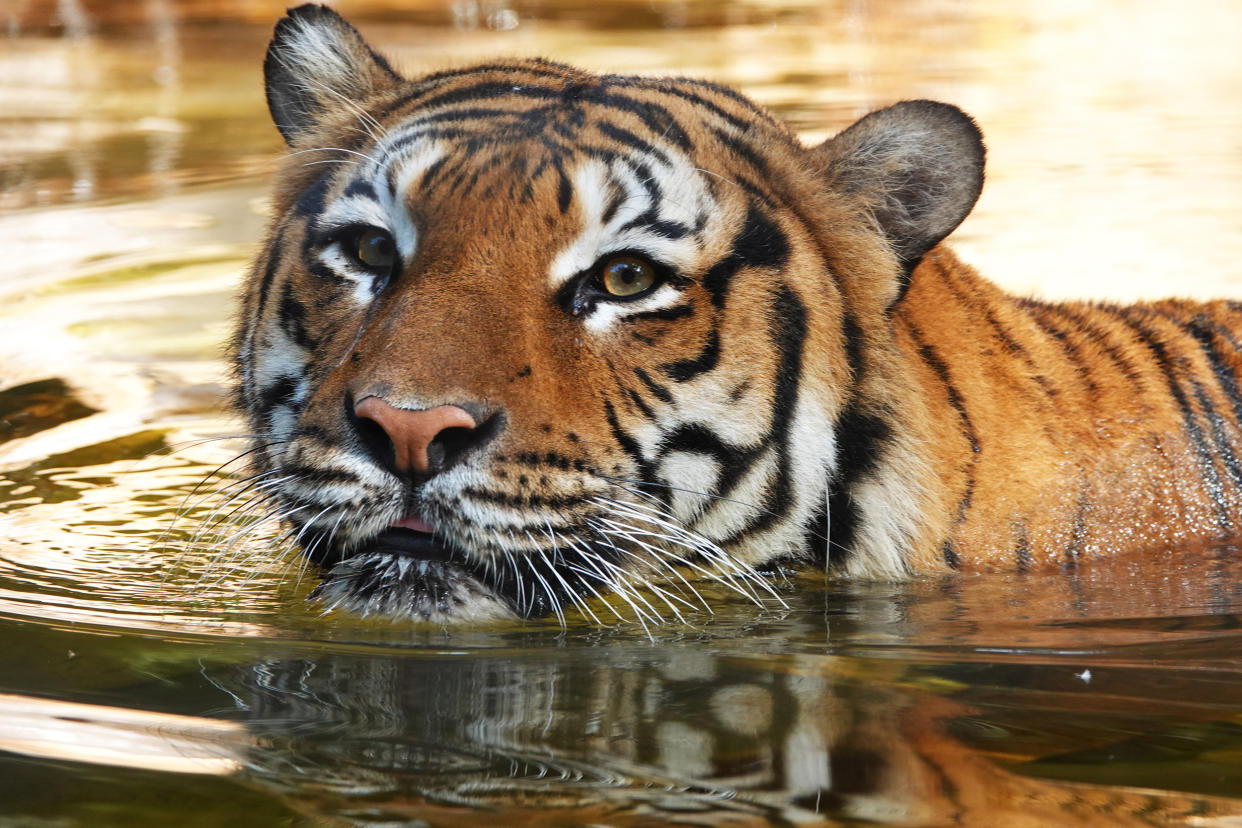Man injured after he put his arm in a tiger's cage at Fla. zoo; tiger was shot and killed
A cleaning worker was seriously injured by a tiger at the Naples Zoo in Florida on Wednesday after the man apparently put his arm into the animal’s enclosure, authorities said.
Eko, an 8-year-old Malayan tiger, was shot by a sheriff's deputy and died, the zoo said.
Deputies were called to the zoo, which was closed at the time, around 6:30 p.m. and found the animal with the worker’s arm in its mouth, the Collier County Sheriff’s Office said.

“The first deputy on scene kicked the enclosure and tried to get the tiger to release the man’s arm from its mouth but the deputy was forced to shoot the animal,” the sheriff’s office said in a statement.
The worker, a man in his 20s, was seriously injured and taken to a hospital, the sheriff’s office said.
After being shot, the tiger retreated into its enclosure and was sedated by a veterinarian so it could be safely examined, the sheriff's office said. A zoo representative later said the animal died.
The sheriff’s office initially said the tiger was 4 years old.
The man worked for a third-party cleaning service hired to clean restrooms and the gift shop and was not supposed to be in that area, the sheriff’s office said.
The sheriff's office said it appeared the man was trying to pet or feed the tiger, but noted the information was preliminary.
It appears the man "traversed an initial fence barrier and put his arm through the fencing of the tiger enclosure," before the tiger grabbed it, the sheriff's office said.
The Florida Fish & Wildlife Commission is also investigating the incident, that agency said.
Eko came to the Naples Zoo in December 2019, a zoo representative said. It is the only Malayan tiger at the zoo.
The tiger previously lived at the Woodland Park Zoo in Seattle, the Naples Zoo said in a February 2020 blog post.
The Malayan tiger is classified as critically endangered and there are only around 200 estimated to live in the wild, according to the World Wildlife Fund.
